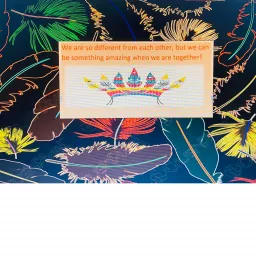We are so different from each other, but we can be something beautiful when we are together.

Othering is the process of seeing or treating others as different or inferior to ourselves. Prejudice, discrimination, and exclusion are all examples of discriminating attitudes and behaviours that can result from this. Othering can happen in a variety of contexts, including the workplace, schools, communities, and cultures.Othering has several consequences for inclusion and diversity. For starters, it creates an exclusionary climate in which individuals or groups that differ from the majority are not accepted, valued, or appreciated for their unique ideas and experiences. This leads to feelings of isolation and marginalization, which can result in poor mental health outcomes, decreased engagement, and poor performance.Second, othering can result in a lack of diversity in workplaces or institutions. This occurs when persons who are seen to be different are not recruited or hired and are not provided with equal opportunities to engage and contribute. This lack of variety can result in the loss of vital viewpoints, ideas, and insights, limiting creativity, innovation, and progress.Finally, othering can lead to false or incomplete knowledge, resulting in preconceptions, biases, and prejudices. These preconceptions can impact how individuals are viewed, assessed, and treated, perpetuating exclusion and prejudice.The concept of othering is very important to Canadian Indigenous people. Indigenous people in Canada have been subjected to othering by the dominant European settler civilization since the 16th century when colonization started. Othering has been maintained through a number of strategies, including forced assimilation, residential schools, cultural genocide, and denial of Indigenous land rights.